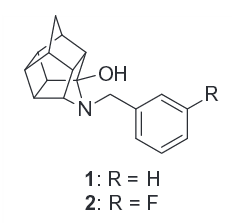Isn't DMT (mainly) just a 5-HT receptor (mainly 5-HT2a and 5-HT1a) agonist like most other psychedelics? According to wikipedia, it was hypothesized that DMT was the endogenous sigma opioid agonist, but "Under these conditions, notions of receptor selectivity are moot, and it seems probable that most of the receptors identified as targets for DMT (see above) participate in producing its psychedelic effects.".
This interests me as I read Sigma 1 agonists are supposed to be cancer promoting agents. As much as I love DMT I worry it may cause cancer via this mechanism based on reports I’ve heard here and there as well as my own anecdotal experience.
Out of classic psychedelics and empathogens, which ones have strongest Ki values for Sigma 1 and 2?
-GC

